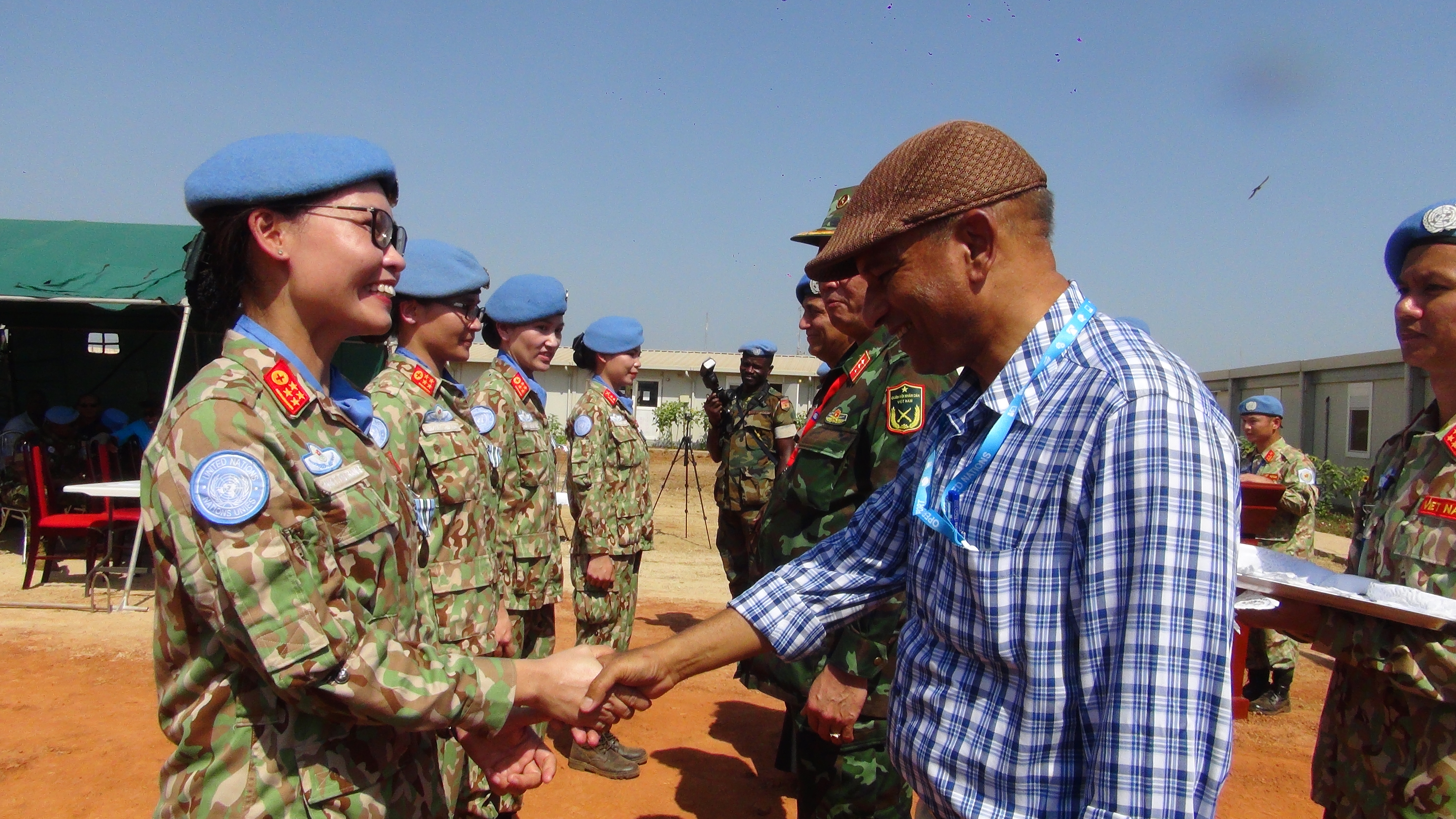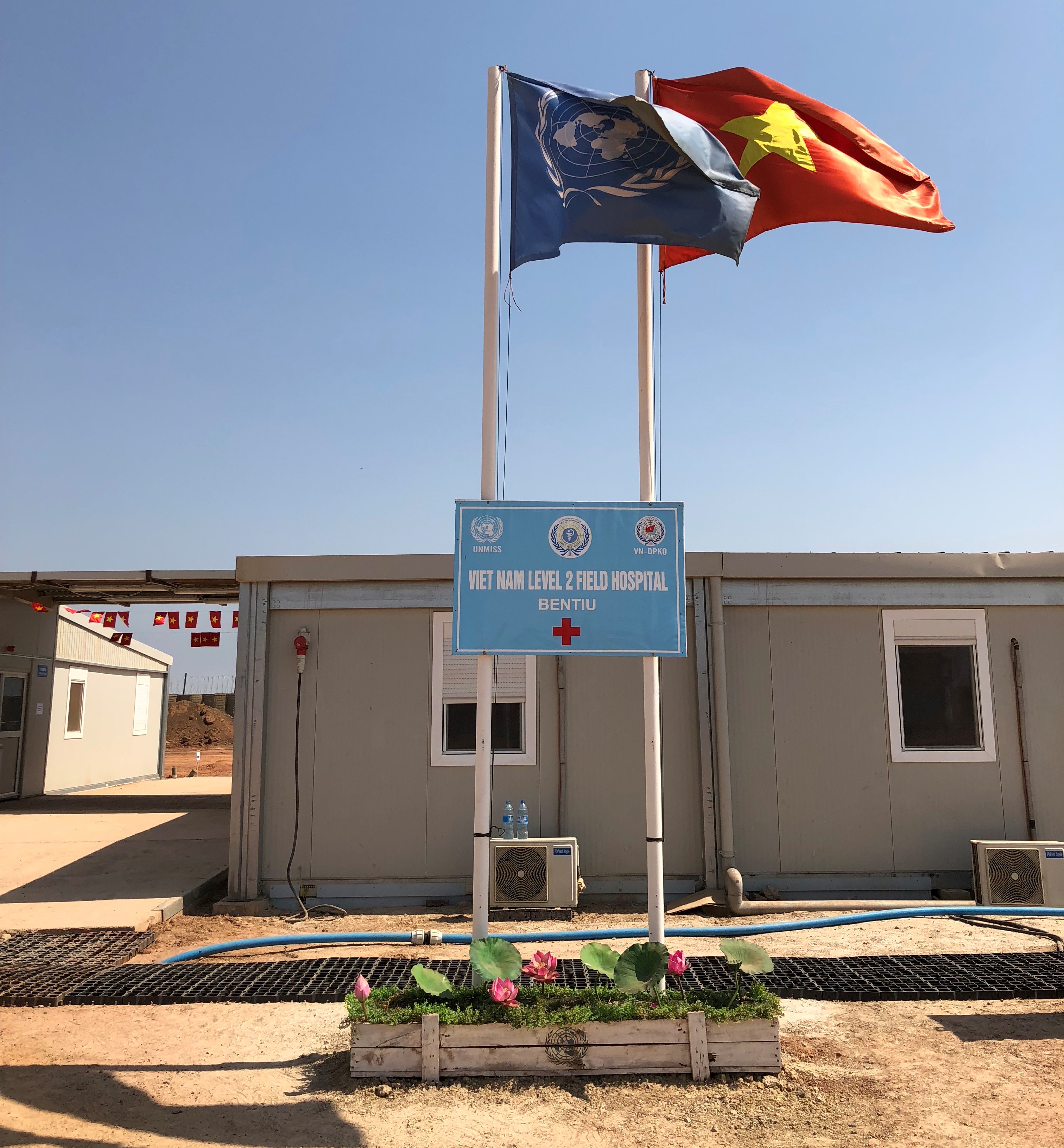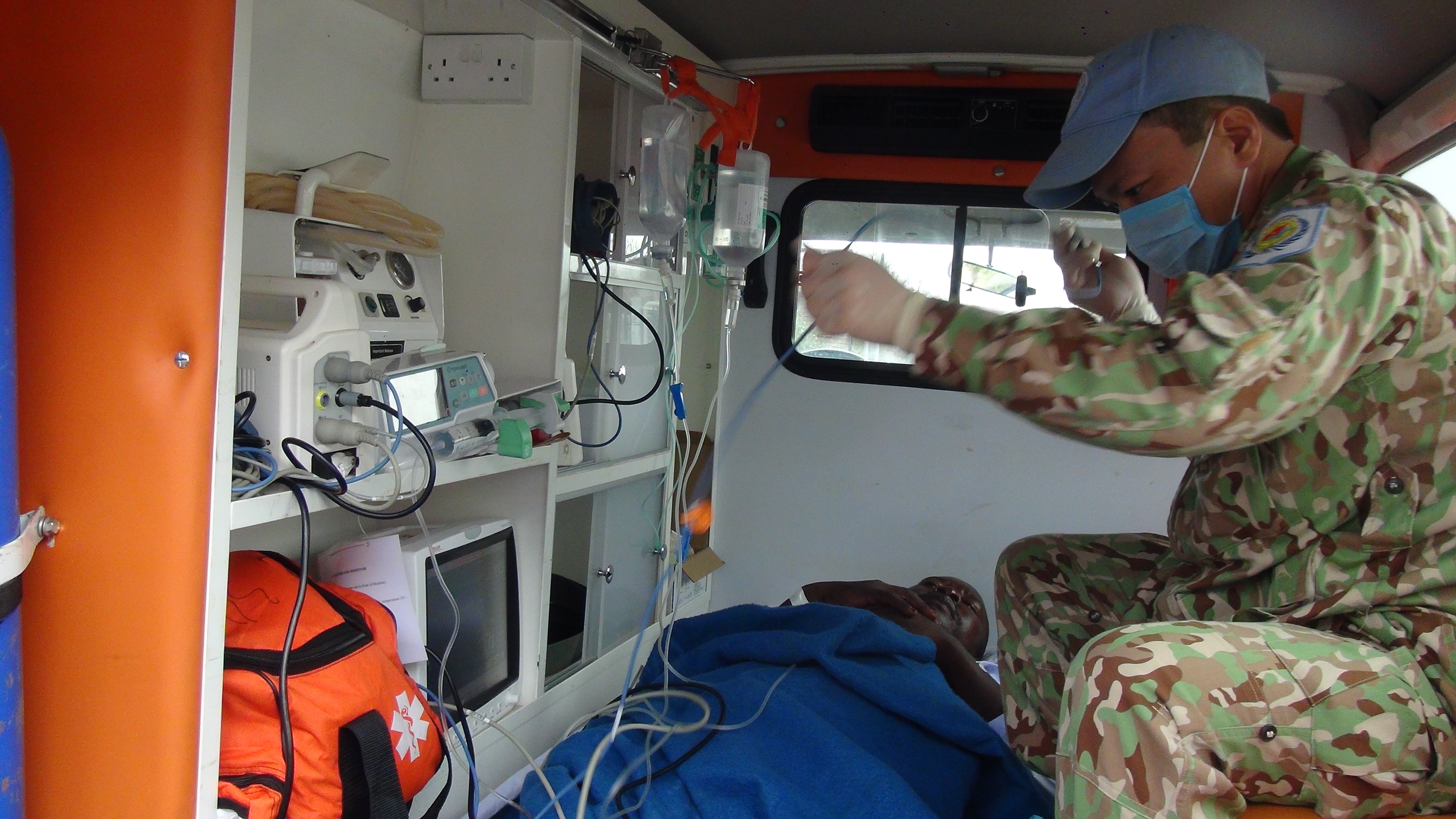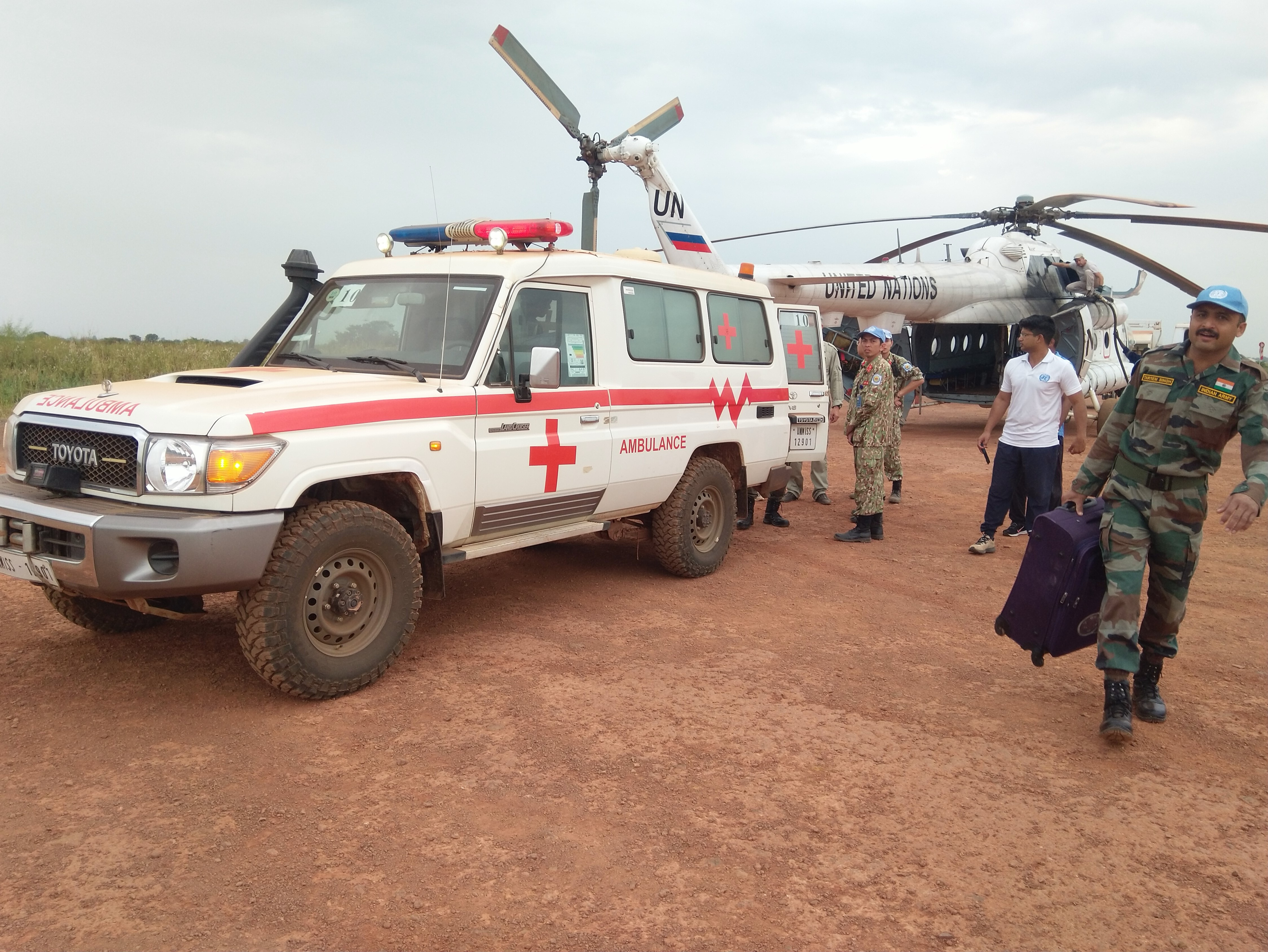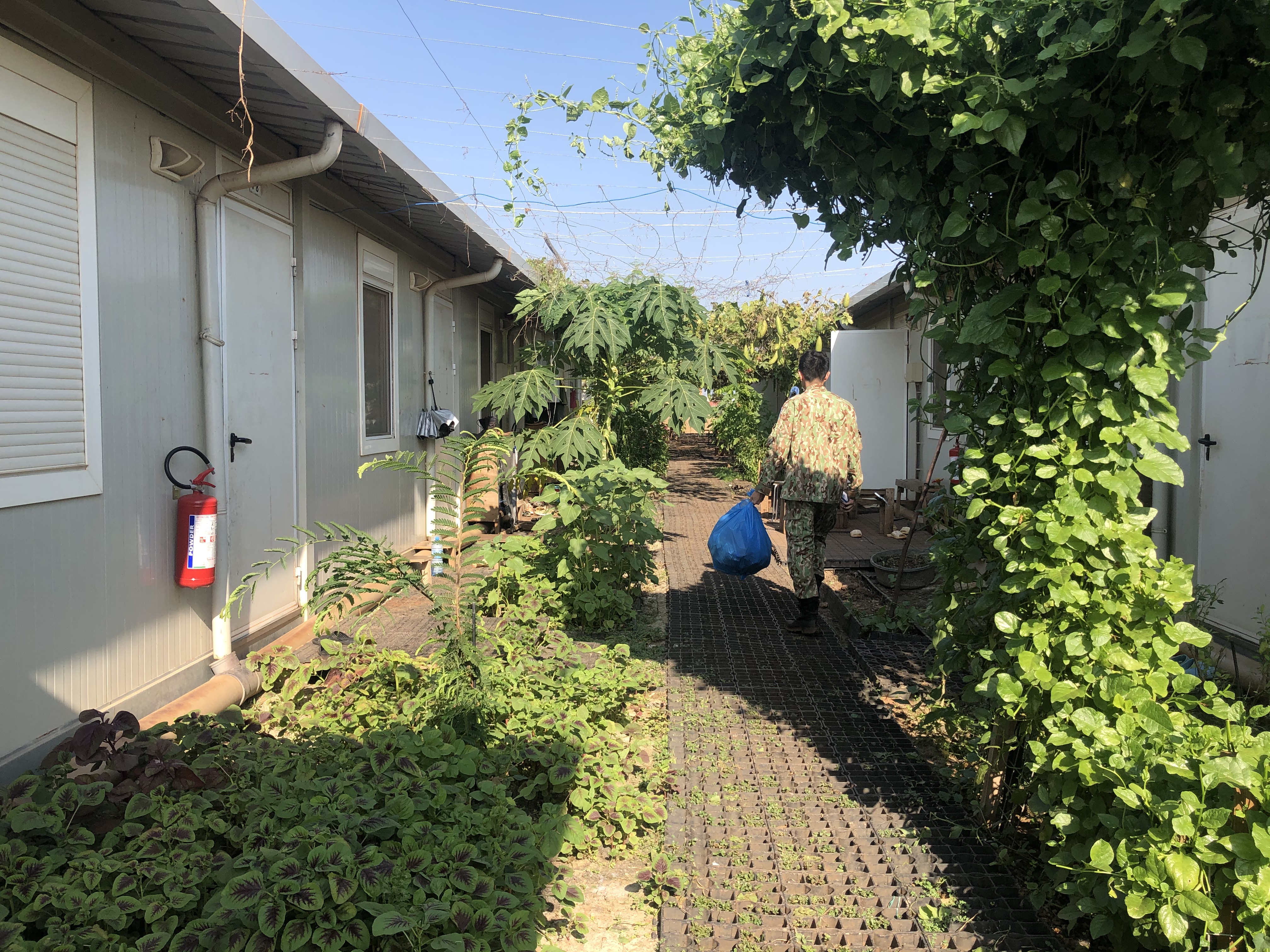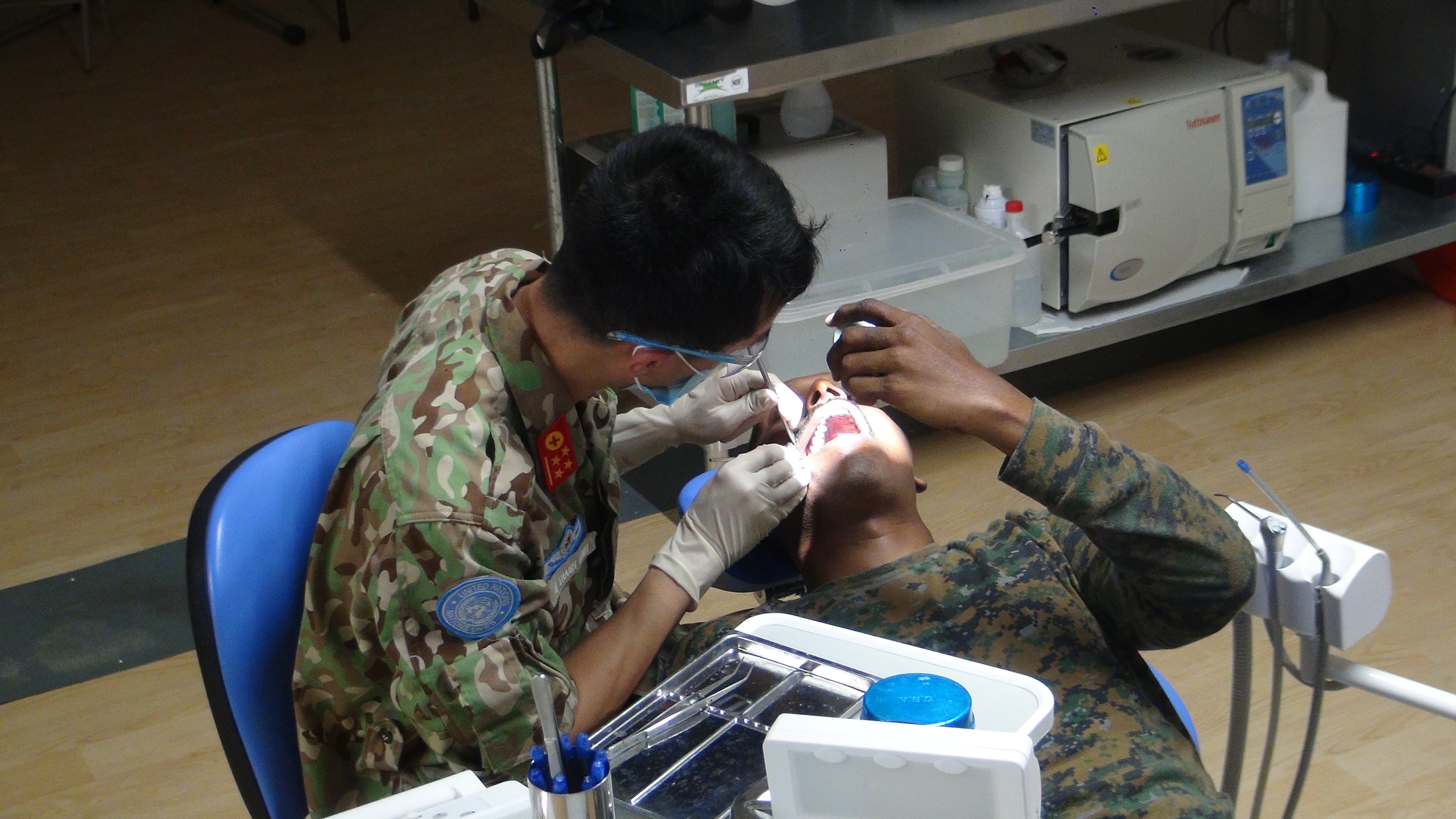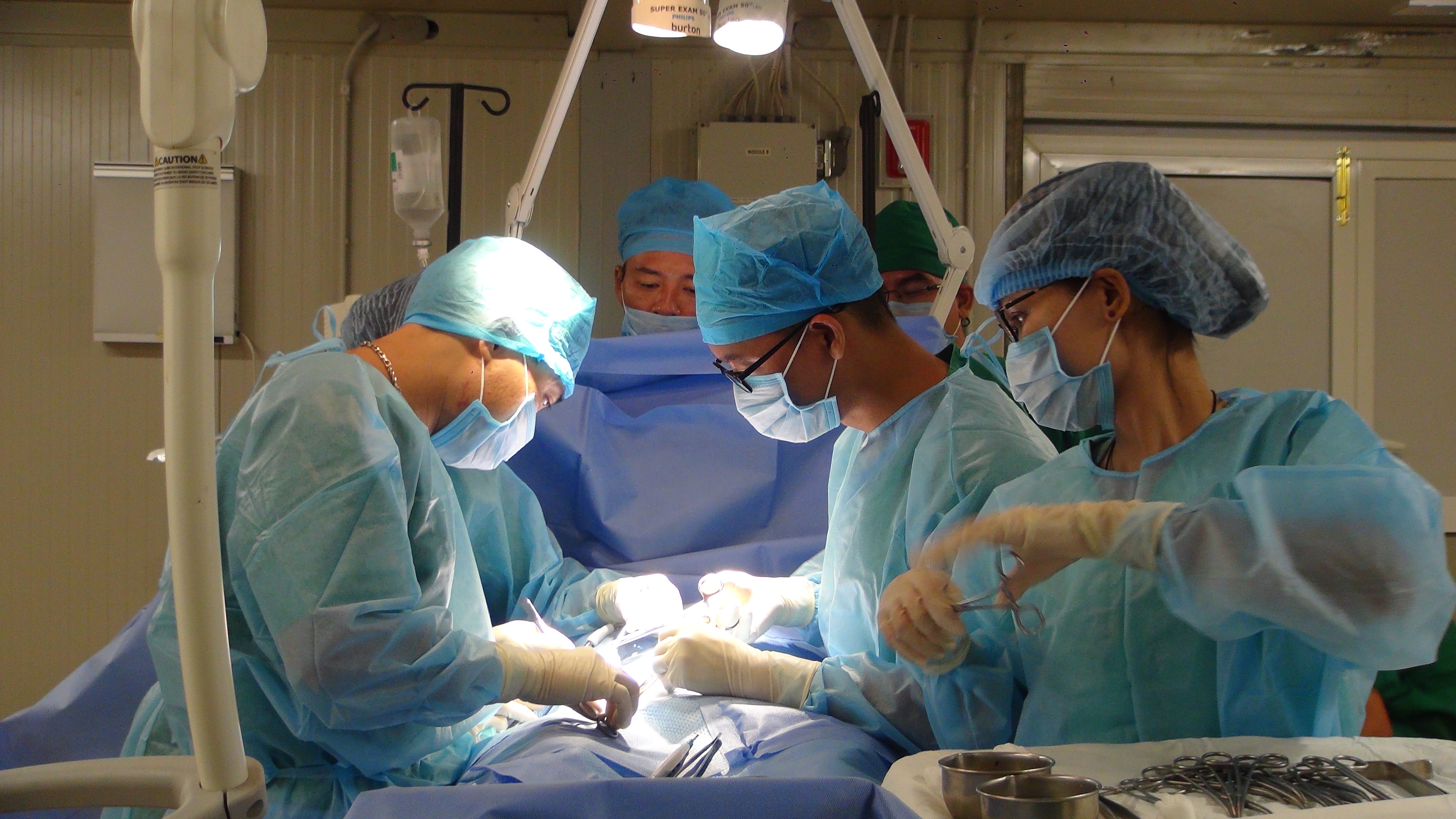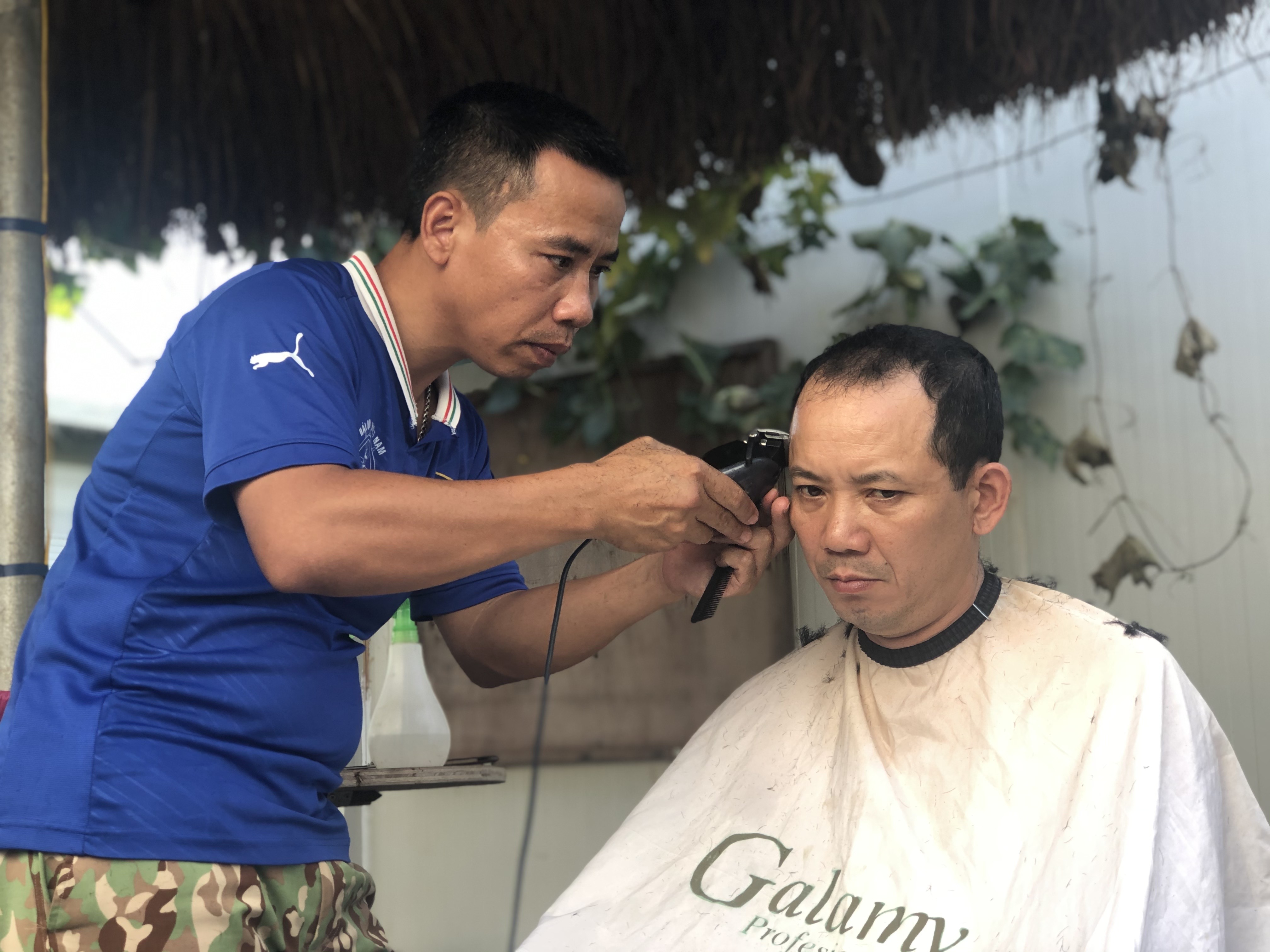Editor’s note: In November, Tuoi Tre News dispatched Pham Thi Hong Van to accompany the Vietnamese level 2 field hospital to serve the United Nations peacekeeping mission in the war-torn South Sudan. She recalls her experiences during her stay there from November 6 to 18.
For a split second, the smell of steamed rice and mam tom – a Vietnamese fermented shrimp sauce known for its pungent smell – created the illusion that I was back in Vietnam. This small reminder of my home country was just one of the many surprises I would experience during my visit to the group of Vietnamese doctors and nurses serving United Nations Mission in Bentiu, Unity State, South Sudan.
I remember how thick yellow dust filled the air as the ambulance from the Indian Horizontal Maintenance Engineering Company (Indian HMEC) arrived at the Vietnamese level 2 field hospital with an injured staff member.
Salunke Ramesh, 39, had his right hand mashed by a generator while on the job. The level 1 field hospital at Indian HMEC had cut the ring from his finger to provide him with first aid and stitch his wound, but doctors there still deemed it necessary for him to be transferred to the Vietnam level 2 field hospital for further treatment.
As the nurse prepared him to be sent to the X-ray room, Ramesh quietly looked at the white cloth that covered his right hand.
He only had two months left in his six-month stay in Bentiu. He had made it this far without any serious injuries; hopefully this one was not as bad as it looked.
After a further examination from the Vietnamese medical team, doctors found that the second knuckle of his pinky finger was broken – an issue that had already been addressed at the level 1 field hospital.
|
|
| Vietnamese and UN flags flutter in the yard of the Vietnamese level 2 field hospital in South Sudan, November 2019. Photo: Hong Van / Tuoi Tre News |
The Vietnamese team then decided to put a brace on his arm that would hold it steady until his finger had healed. He would have to be cautious for the rest of his time in Bentiu, but at least he would be okay in the long run.
Ramesh’s visit was just one of many examples of why the field hospital in Benitu was an integral part of the UN’s peacekeeping mission in South Sudan. With thousands of staff stationed there, issues including toothache, food poisoning, malaria, and appendicitis were nearly certain to occur, and reliable doctors were a must.
For severe issues that extended past the hospital’s capabilities, patients were transferred to the level 2+ hospital in the capital, Juba, or a level 3 hospital in a nearby country, such as Kenya or Uganda.
The mission of a level 2 medical facility was to provide second line health care, emergency resuscitation and stabilization, limb and life-saving surgical interventions, basic dental care and casualty evacuation to the next echelon. It had out-patient and in-patient services, a surgical room, X-ray services, dental and laboratory facilities, an isolation facility and aero-medical evacuation capabilities. The level 2 field hospital in Bentiu did not treat local South Sudanese due to its limited resources. Instead, its purpose was to provide care to the 4,000 military, police, and civilian UN staff working in the Protection of Civilians (POC) site in northern South Sudan.
For local South Sudanese, nearby facilities, as well as charity hospitals such as the MSF - Médecins Sans Frontières, offered treatment. The Vietnam level 2 field hospital in Bentiu was the first Vietnamese unit to join the UN peacekeeping mission abroad.
The group received special conflict zone training in Vietnam from 2014 until October 27, 2018, when they were deployed to Bentiu, Unity, to work at the hospital and replace the UK personnel who had previously staffed the facility.
A total of 63 staff members were responsible for ensuring the hospital’s mission, including support and logistic staff who ran the kitchen, electricity, water and did other tasks related to general maintenance. For the first two months of the mission, all operations at the level 2 field hospital took place in tents.
|
|
| A patient receives medical care in an ambulance in South Sudan, November 2019. Photo: Hong Van / Tuoi Tre News |
On top of this obvious challenge, the difficult location and extreme weather with highs of up to 43 degrees Celsius were an obstacle for any doctor accustomed to practicing medicine in controlled environments with modern equipment.
“Not having much time to adjust to this new circumstance in a foreign country, on the first night, we received an emergency patient with appendicitis. It was decided that the operation would happen that night while much of the equipment was still in unopened boxes. The doctors and nurses had never teamed up before, all the equipment was new and had not yet been tested, and the operation bed had only two levels of adjustment,” Vietnamese Dr. Nguyen Thi Phuong Thao recalled.
“That first operation was almost five hours long and I was nearly unconscious by the end of the day, but we still considered it a success. We followed up with that first patient for a few months.”
So far, after more than a year, the Vietnam level 2 field hospital has provided treatment for 2,022 cases, undertaken 62 operations, and ordered seven cases of aero-medical evacuation.
Based on feedback, the level of patient satisfaction at the facility ranged 94 to 100 percent.
With each term of service lasting one year, the first batch of Vietnam level 2 field hospital staff has now returned to Vietnam and been reunited with their families.
In an interview with Tuoi Tre News in Juba, UNMISS Chief Medical Officer, Dr. Iqbal Modh expressed his appreciation for their service.
“This was the first Vietnamese medical team for this mission. They were coming for the first time, and they were replacing the UK medical team from a developed country. So, at the time, there was a little apprehension and concern. But this team established themselves remarkably,” he said.
“They have proved that they’re professionally very sound. Initially, there was the problem of language. That is still not totally solved. But because of their good behavior, and their exemplary interaction with the patients, they have developed a very good reputation in Bentiu. We were really very happy to have them in the mission.”
|
|
| A helicopter is deployed to transport a patient in South Sudan, November 2019. Photo: Hong Van / Tuoi Tre News |
Raising the spirit of resolute soldiers
When the first team of Vietnamese staff arrived, there were no plants around their accommodation area.
Coming from a tropical country where green trees and plants are abundant, the staff dedicated themselves to turning their accommodations and workplace into a ‘green oasis.’
Accomplishing this offered several benefits, including a natural shield to the strong African sun.
The staff grew flowers to add color to the area.
Along with this, a 300-square-meter garden was home to different kinds of vegetation, namely morning glory, malabar spinach, bush okra, luffa, bitter melon, and many other vegetables.
In the fourth month of their mission, they began harvesting the vegetables and were able to eat fresh greens in every meal.
Commander Tran Xuan Thao, chief of the logistic team, estimated that the garden had provided 6-7 metric tons of vegetables for the team.
Of course, adapting to their environment and becoming self-sufficient are nothing new to the Vietnamese military.
In Vietnam, soldiers stationed in the Truong Sa (Spratly) and Hoang Sa (Paracel) archipelagos have a long history of self-sustainability – they grow vegetables and raise pigs on the islands despite having very little fresh water.
|
|
| Greens at the accommodations of Vietnamese doctors in South Sudan, November 2019. Photo: Hong Van / Tuoi Tre News |
In Bentiu, the staff would often remind one another of a well-known Vietnamese military tradition: ‘Di dan nho, o dan thuong’ – which means to live and behave in a way that ‘when you leave, the people miss you, while you stay, the people like you.’
During my time in Bentiu, I had many conversations with the UN staff there who had interacted with the Vietnamese, either as patients or coworkers, and I heard a lot of good things about their friendliness and professionalism.
On the night before seeing off the first half of the staff after the successful completion of their mission, George Abrefa, the Assistant Superintendent of Police, Environmental Officer, and Public Health Nurse at the Ghanaian Formed Police Unit (FPU) said: “The Vietnamese level 2 field hospital is one referral center that is very helpful to all of the level 1 field hospitals in Bentiu, particularly the Ghana FPU level 1.
“We have such a cordial relationship with the staff, nurses, paramedics, doctors, and everyone else there.
“They are so friendly and ready to receive all our referral cases. They do surgeries for us and many other things.
“In terms of waste management, they actually help us a lot by incinerating all our hospital waste for us. In terms of environmental cleanliness, they are our immediate supervisor.
“We have such a good relationship with the Vietnamese level 2 staff and this particular moment is really painful. We are losing this crop of doctors, nurses, and paramedics, but I know the good people of Vietnam will send us a new crop of staff who will be doing things in the same way as their colleagues did for us.”
|
|
| A Vietnamese doctor check a patient's teeth in South Sudan, November 2019. Photo: Hong Van / Tuoi Tre News |
South Sudan
The Republic of South Sudan became the world’s newest nation and Africa’s 55th country on July 9, 2011.
Renewed conflicts in December 2013 and July 2016 have undermined the development gains achieved since independence and worsened the country’s overall humanitarian situation.
South Sudan remains in a serious humanitarian crisis due to the cumulative effects of years of conflict which have destroyed people’s livelihoods and forced 4.2 million people to flee their homes – nearly two million inside and almost 2.2 million outside the country.
Extreme levels of acute food insecurity persist across the country and the number of people who require humanitarian assistance in 2019 remains at seven million, or more than half of the population. Women and children continue to be the most affected.
South Sudan is one of the most oil-dependent countries in the world, with oil accounting for almost the totality of its exports, and more than 40 percent of its gross domestic product (GDP).
The country’s GDP per capita in 2014 was $1,111 but it dropped to less than $200 in 2017.
Outside the oil sector, livelihoods are concentrated in low productive, unpaid agriculture and pastoralist work.
Coupled with economic mismanagement, many years of conflict have eroded the productive capacity of the country.
Poverty levels are expected to remain extremely high on the back of severe food insecurity and limited access to basic services across the country.
About 82 percent of the population in South Sudan are poor according to the most recent estimates.
|
|
| Doctors perform appendectomy on a patient at the Vietnamese level 2 field hospital in South Sudan, November 2019. Photo: Hong Van / Tuoi Tre News |
UN Mission in South Sudan
UNMISS' objective is to consolidate peace and security, and help establish conditions for development in the Republic of South Sudan, with a view to strengthening the capacity of the government of South Sudan to govern effectively and democratically and establish good relations with its neighbors.
On December 15, 2013, violence broke out in South Sudan’s capital Juba and quickly spread to other locations in the country, resulting in a deep nationwide political and security crisis.
Seven out of the country’s ten states were affected by the conflict with Central Equatoria, Jonglei, Lakes, Unity and Upper Nile states being the hardest hit.
On May 27, 2014, the Security Council reprioritized the mandate of UNMISS towards the protection of civilians, human rights monitoring and support for the delivery of humanitarian assistance.
As of December 2014, there were more than 19,000 UN deployed personnel at UN Mission in South Sudan, including volunteers, civilians, experts, polices, staff officers, and contingent troops.
|
|
| A Vietnamese doctor trims hair for his teammate after work in South Sudan, November 2019. Photo: Hong Van / Tuoi Tre News |
Like us on Facebook or follow us on Twitter to get the latest news about Vietnam!



